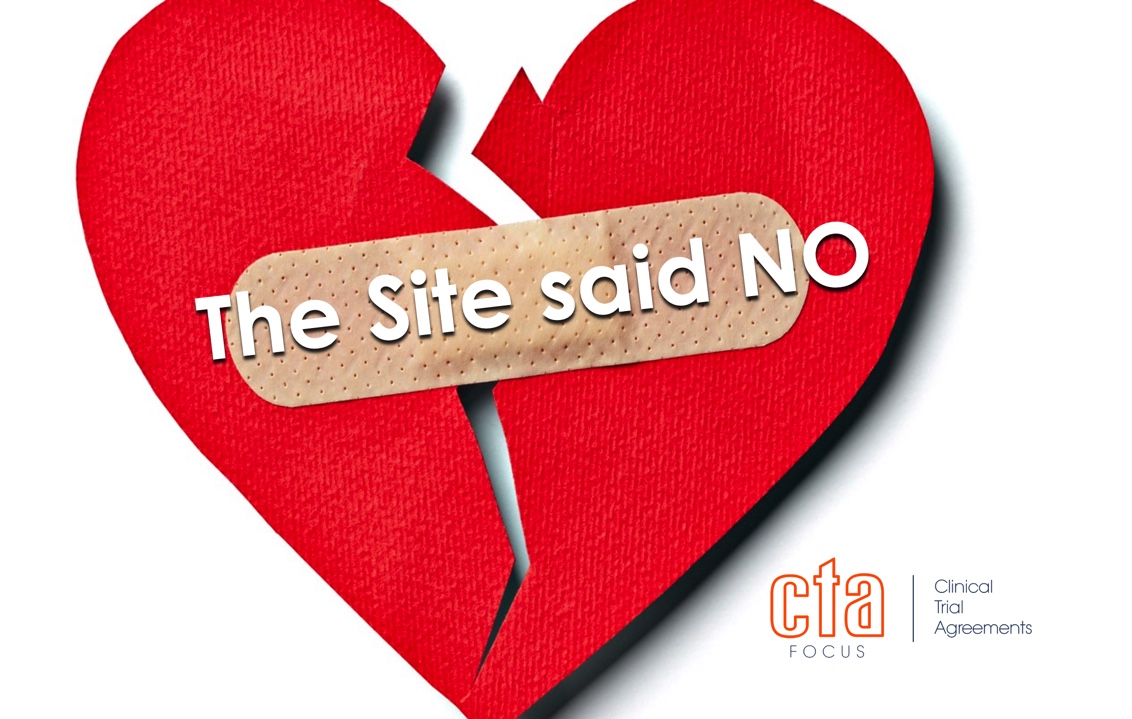
The Site said NO
Site’s decision to cancel participation in a clinical trial is always frustrating news for the CROs/Sponsors. There are various reasons behind such decision: lack of resources, competitive studies, inability to meet the trial timelines, personal or external reasons etc. From the CTA perspective, site’s withdrawal from the trial may be the result of inability to reach agreement on the budget or CTA wording or negotiation timelines that are sometimes even longer than patient recruitment period.
It is even more frustrating when the decision to cancel participation is made when all start-up activities are completed, and the CTA is undergoing signature process.
So, the site is no longer willing to participate (or is ‘dropped’, as we say using the professional slang), what are the consequences from the contractual point of view?
Firstly, if the CTA was never executed, formally there are zero consequences, except for the time and efforts invested into negotiations by all the parties. However, if the site’s will to withdraw from the trial is based on some exceptional and well-grounded reasons and to preserve the good relationship, the sponsor may decide to provide some reimbursement to the site covering time and efforts invested into the feasibility/start-up phase of the trial. Such reimbursement may be formalised in short contract or reimbursement letter.
Secondly, if the CTA was fully executed, highly likely a start-up fee will have to be paid to the site preferably before the CTA is terminated (if formal termination is at all required). Previously we discussed start-up fee payment.
Last but not least would br to remember that site’s refusal to participate should be respected. If it didn’t work out this time, it will might next time, so no need to slam the door, it’s better to express gratitude for time and efforts and express hope for future cooperation.
